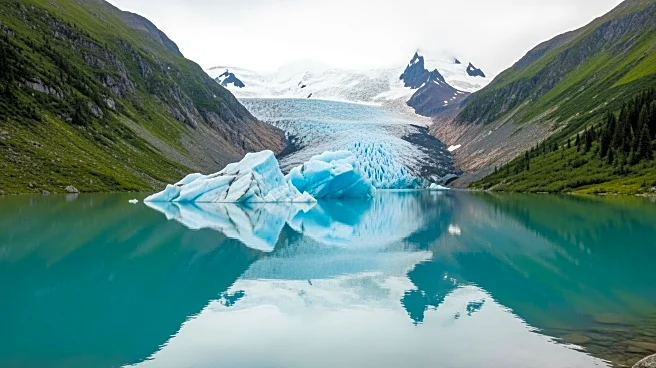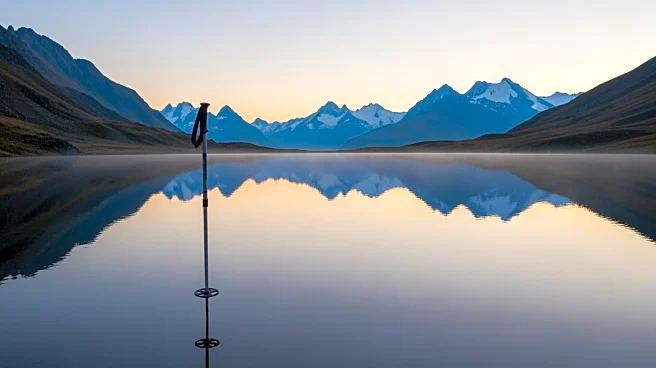What's Happening?
A study published in Nature explores how the tidewater cycle affects the geochemistry of alpine glacial sediment plumes. The research indicates that tidewater glaciers, which terminate in the ocean, provide
a direct route for glacial weathering products to enter coastal waters. The study highlights differences in sediment transport and chemical weathering between stable and retreating tidewater glaciers. Enhanced chemical weathering beneath retreating glaciers results in higher concentrations of dissolved trace-metals, impacting the geochemistry of fjord waters.
Why It's Important?
Understanding the geochemical processes associated with tidewater glaciers is crucial for predicting changes in coastal ecosystems. The study's findings could inform climate models and help anticipate the impact of glacier retreat on marine environments. As glaciers continue to retreat due to climate change, the increased transport of weathered sediments could alter nutrient dynamics and affect marine biodiversity. This research contributes to the broader understanding of how glacial processes influence ocean chemistry and ecosystem health.
What's Next?
Further research is needed to quantify the long-term effects of glacier retreat on coastal geochemistry and marine ecosystems. Scientists may focus on mapping subglacial sediment storage and transport to better predict changes in sediment discharge. Collaboration between glaciologists and marine ecologists could lead to comprehensive studies on the ecological impacts of glacial sediment plumes. Policymakers may consider these findings when developing strategies to mitigate the effects of climate change on coastal regions.
Beyond the Headlines
The study underscores the complex interactions between geological processes and marine environments, highlighting the importance of interdisciplinary research in understanding climate change impacts. Ethical considerations may arise regarding the preservation of glacial landscapes and the protection of vulnerable marine ecosystems. The findings could influence cultural perceptions of glaciers as dynamic systems that play a critical role in global environmental health.









